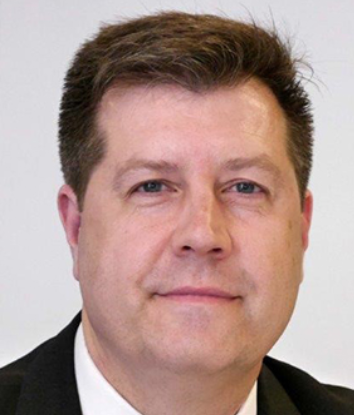Dr. Homer Venters, an expert on prison medical care and a resident of Port Washington, has been appointed to President Joe Biden’s and Vice President Kamala Harris’ COVID-19 Health Equity Task Force, the White House announced last week.
A physician and epidemiologist specializing in prison health care and social justice, Venters works as an independent consultant addressing COVID-19 responses in jails, prisons and immigration detention facilities, and was touring prisons in Florida when he found out about his appointment.
“I found out with the official announcement,” Venters said in a phone interview. “And you know, I’m excited.”
Venters will join an 18-person team led by Dr. Marcella Nunez-Smith, an epidemiologist and Yale University professor, and representatives from the Department of Agriculture, Department of Education, Department of Health and Human Services, Department of Housing and Urban Development, Department of Justice and Department of Labor.
As one of the 13 appointed specialists in various fields, Venters will bring the perspective of health care for the incarcerated, which he first became interested in while completing medical training in the South Bronx.
“I trained in a program called Social Internal Medicine,” Venters said. “And I had a lot of patients, who I would see in the clinic who would report being hurt when they were in prison or jail, and or just being denied basic health care. That got me very interested in the subject.”
From there, Venters spent two years in a fellowship, touring the country to examine health care for detained immigrants. Eventually he was named deputy medical director of the New York City jail system.
“The critical thing was that in New York City, the health service is independent of the security service,” he said. “So my boss was the commissioner of health. In most places in the United States the health service works for security service. And that’s really, part of this idea there isn’t a culture of transparency, like we have in hospitals or outpatient clinics.”
Lack of transparency complicates many matters in prison health care, Venters says.
“Most of what people know comes from the people who run prison systems, but those systems really are built and run in a way that lacks the same kind of transparency that we have in hospitals, or nursing homes or outpatient clinics,” Venters said. “The access to health care for people who are incarcerated is really substandard, and yet what people hear from the people who run jails and prisons is that people get high-quality health care, which they often don’t.”
COVID-19 threw a further wrench into the works, according to Venters.
“The health care systems in these places are often broken, so that people who are incarcerated before COVID, if they had a medical problem, they may not be able to get care or assessment for it,” Venters said. “It’s really shocking to see how when COVID would hit a building, or a dorm, some part of a detention setting, it just runs like wildfire through it. And really, in many cases, the people who are providing care are the inmates caring for the other inmates. And the health services are quickly overwhelmed in a way that leaves people to fend for themselves. It’s terrifying, because there’s also a lack of information, and that if people do find that they can get seen, often what happens is they could get put into solitary confinement, that may be the primary response.”
These factors mean that COVID-19 is only getting worse in prisons, Venters said.
“I would say right now, behind bars, things are getting worse, they are not getting better,” Venters said. “As a nation, we’re looking ahead, we think we’ve turned a corner, but for people who are in probably 5,000 jails, prisons and immigration detention centers around the country, for many of them, things are getting much worse, and they’re gonna keep getting worse for many, many months, because they don’t have an equitable access to vaccines.”
He adds that the cooperation of government health authorities will be necessary for the revamping of such systems.
“What I really want to promote is a much more active role of health agencies, like the [Centers for Disease Control], state departments of health and local departments of health, a much more active role for them in promoting the health of people who are in the justice system,” Venters said.
It’s the feedback of the incarcerated that Venters also intends to take with him to the task force.
“The reality of what they’re experiencing is terrifying for them and their families,” Venters said. “And so I am excited to hopefully take some of these kind of insights that I’ve learned from incarcerated people and from being in these places, and use that [on the task force].”
A native of Minnesota, he moved to the Port Washington area seven years ago. Before working full-time as a consultant, Venters served as chief medical officer of the New York City Correctional Health Services. He also wrote a book, “Life and Death in Rikers Island,” presented a TEDMED talk on health risks of incarceration last year, served as a clinical associate professor of the New York University College of Global Public Health, and wrote articles for The Hill, among other publications.
Before the outbreak of COVID-19, Venters was serving as president of the nonprofit Community Oriented Correctional Health Service.
Venters added that he hopes to use his position on the task force to advance the idea that the health of people who are incarcerated is not separate from that of other people.
“We’re all in the same boat,” Venters said. “And so we need to use our public health structures and organizations to promote their health, just like we do everybody else’s.”



